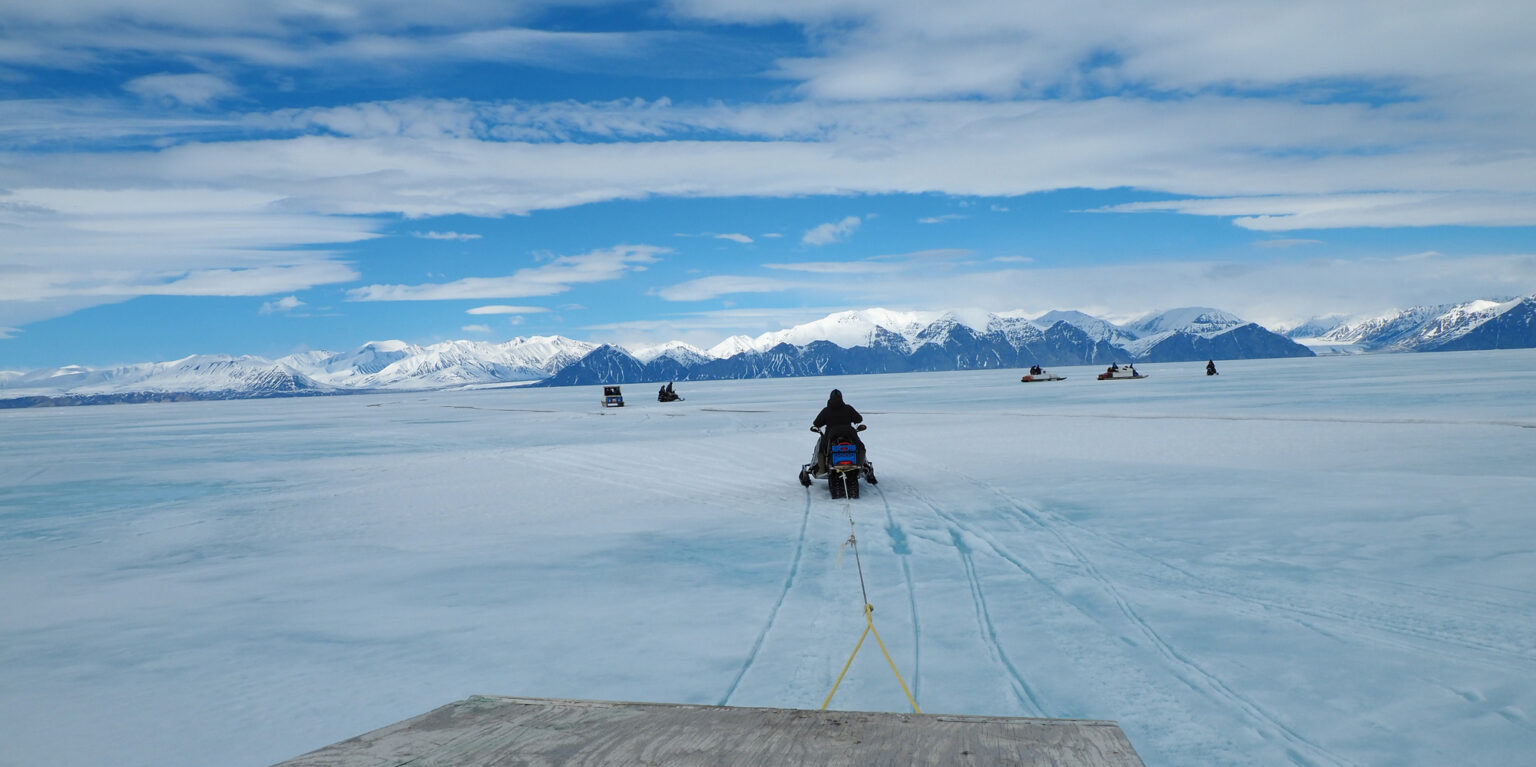The HMCS William Hall recently established a formal tie with an Inuit community near Hudson’s Bay. The Canadian Armed Forces considers the Inuit to be essential in the defense of Canada’s Arctic territory. AFP/GETTY IMAGES
THE WATCH STAFF
The Royal Canadian Navy’s (RCN) newest Arctic offshore patrol vessel formally established ties with an Inuit community near Hudson Bay in March 2024. The visit by the HMCS William Hall is part of an effort by the Canadian Armed Forces (CAF) to strengthen its ties with Indigenous communities in the Arctic, bolstering the defense of the region and North American homeland security.
The March 24, 2024, Northern Affiliation ceremony with the Kivalliq Inuit Association and community leaders in Rankin Inlet, Nunavut, took place at the Old Rankin Inlet Arena. The William Hall was the fourth of the RCN Arctic patrol vessels to affiliate with a region of Inuit Nunangat. “Ship affiliations with the communities of the Inuit Nunangat strengthen the RCN’s understanding of the Arctic region and encourages relationship-building with Canada’s Northern communities. Learning from the northern communities is a crucial element for the RCN. The Canadian Arctic is a primary strategic consideration for the Canadian Armed Forces (CAF) and is crucial to Canada’s national identity, security, and future prosperity,” stated a news release from the Canadian National Defence ministry.
The Kivalliq region borders Hudson’s Bay. About 11,000 people live within its 434,331 square kilometers. Kivalliq also hosts the Thelon Wildlife Sanctuary, the largest wildlife refuge in Canada, which is home to caribou, Arctic wolves and foxes, wolverines, and grizzly bears. Its harsh, rugged terrain is typical of the Arctic domain and the Inuit can teach Canadian Sailors how to effectively operate in the environment.
Canada’s Northern region spans three territories, covers land up to the North Pole and comprises 75 percent of the nation’s coastline. The large area, which contains 36,000 islands, depends on local cooperation and support to maintain domain awareness. “Canada’s Arctic waters are integral to Canadian sovereignty and are an increasingly crucial part of our national defence strategy. It is with great pride that we affiliate each new Arctic and Offshore Patrol Vessel with northern regions, establish ties with communities who shape our national identity, and enhance operational readiness in Arctic waters,” said Bill Blair, Canada’s Minister of National Defence.
The RCN is affiliating each one of its Arctic and Offshore Patrol Vessels with the six Inuit regions of the Inuit Nunangat. In 2019, HMCS Harry DeWolf celebrated its affiliation with the Qikiqtani region of Nunavut; in 2022, HMCS Margaret Brooke was affiliated with Nunatsiavut in Hopedale, NL; and in 2023, HMCS Max Bernays was affiliated with the Kitikmeot Region, in Cambridge Bay, NU, according to the National Defence news release.
The HMCS William Hall is the fourth AOPV out of six that will eventually patrol the Arctic. The 103-meter ship has the capacity to host helicopters and small aircraft and its bay is large enough to transport equipment and troops.
The Arctic presents unique defense challenges and both the CAF and U.S. militaries have recognized the importance of cultivating deeper ties with Inuit communities. “Securing the North American homeland is a mutual interest of all who reside within its borders, including the Indigenous people of the United States, Canada, and Greenland. Just as Special-Operations Forces (SOF) are integral to the future of homeland defense in the High North, Indigenous people are integral partners to the overall effort. Indigenous leaders, communities, and institutions can contribute to expanding SOF’s Arctic knowledge and capabilities. Therefore, the SOF-Indigenous partnership is a critical component of future North American homeland defense,” reported the Journal of Indo-Pacific Affairs, a U.S. Air Force publication, in 2022.

